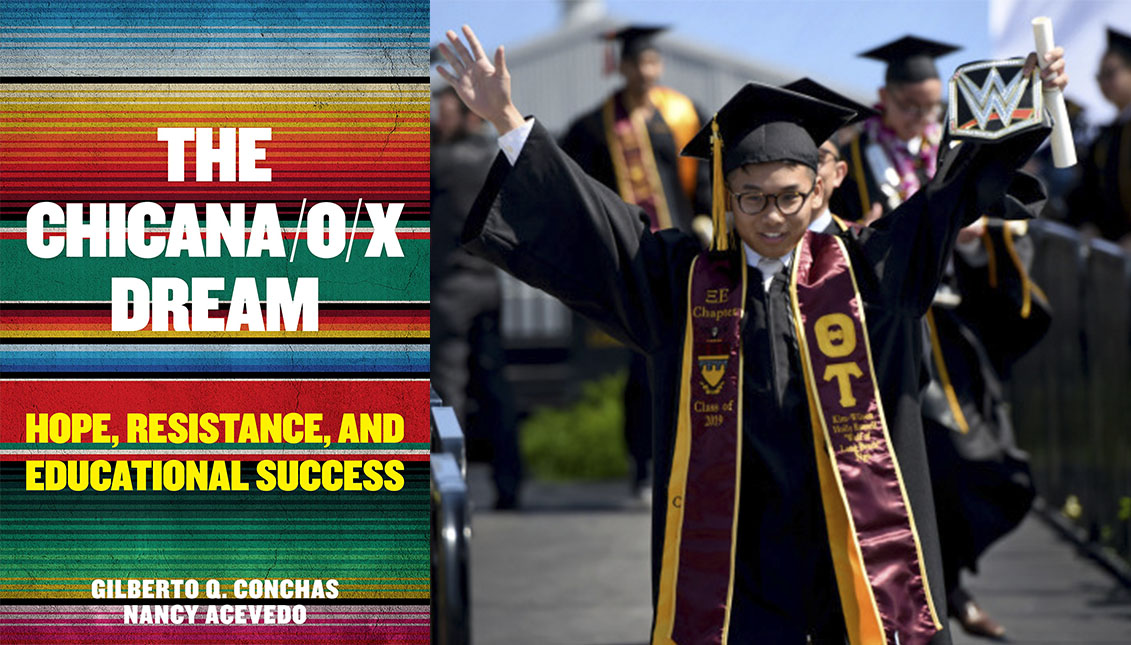
A new approach to "success or failure" in the education of Mexican-American students
The Chicana/o/x Dream dismantles preconceived ideas about the school dropout rate of Chicano students and points out holes in the system.
In quantum physics, it is often said that the observer's gaze affects what is observed. It modifies it, in a way.
The same applies to social research, especially the study of students of color, who have always been characterized as underachievers and unsuccessful. But are these analyses really being true to reality?
According to Prof. Gilberto Q. Conchas and Nancy Acevedo, authors of the book The Chicana/o/x Dream, this traditional representation of Mexican-American students in terms of "educational failure" is wrong.
Through interviews with students and by linking their educational experience as Latino teachers, they realized that the analyses conducted to date were not taking into consideration ethnic studies to examine the experiences of students of color.
"We know that many young Chicanos are doing well in school and gaining social mobility. Therefore, we used interdisciplinary perspectives, including Chicano feminist theory, to highlight the various strategies employed by Chicanos to foster hope, resilience and educational success," both authors explained in an interview with Inside Higher Ed.
The book realistically outlines how the first generation of successful Mexican-American college students has "overcome adversity," addressing stories of men and women who have succeeded beyond social obstacles such as migration or poverty, trying to integrate their dual identity as Latinos and Americans.
The Chicana/o/x Dream also launches a harsh and accurate social critique of the unequal funding of community colleges, which forces students, according to the authors, to work full time in order to cope with their survival.
RELATED CONTENT
An example of this is the California Community College (CCC) system, which has 25% of all community college students in the nation and where 43% of them identify themselves as Latino. A large percentage of them leave without having obtained a degree due to the lack of investment.
"At the community-college level, institutional practices and policies further reinforce that Chicano students do not belong in higher education," the authors postulate.
The book is based on three unique research projects with first-generation, low-income Chicano students at five community colleges and one university, classified as institutions serving Hispanics in the United States.
So what are the keys to educational success for Mexican American students?
Conchas and Acevedo propose interconnected aspects of improvement to foster a sense of belonging among these students:
- The need for greater support from counselors and teachers.
- The commitment of universities to prepare students equally to dismantle persistent colonial contexts.
- An equitable distribution of institutional resources.
- The hiring of pluralistic and critically aware faculty that retain the Chicano student body.
- The promotion of family relations and as a collective of students from the educational institution, encouraging an environment of collaboration.
- Finally, access to professional and research internships that are fairly accessible.












LEAVE A COMMENT: